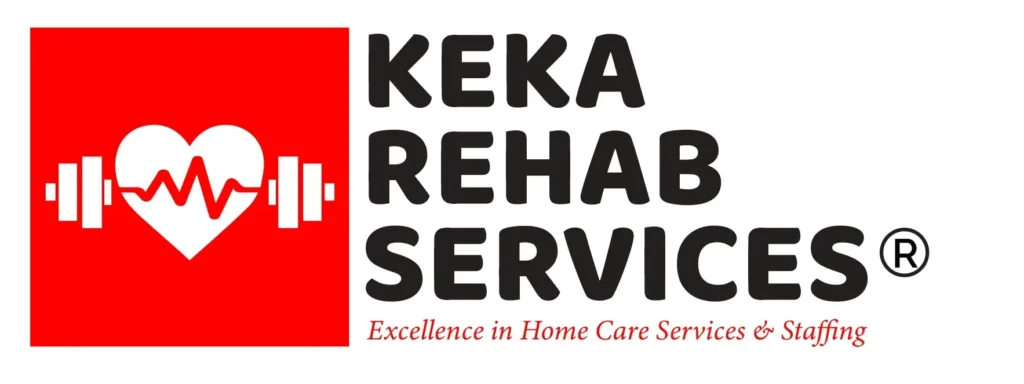When your family needs support, an experienced home health care aide can make a significant difference. These professionals are trained to assist with daily activities, ensuring your loved ones maintain their independence and quality of life. Whether it’s help with personal care or managing health needs, a skilled aide provides compassionate and effective support.
Agencies specializing in home health care handle everything from hiring to background checks, giving you peace of mind. They ensure that the aides are not only qualified but also match your family’s specific needs. This personalized approach is crucial for building trust and ensuring your home environment remains comfortable and safe.
With the guidance of a seasoned home health care aide, your family can navigate daily challenges with confidence. This article will explore the essential aspects of hiring and working with these professionals, helping you make informed decisions for your family’s well-being.
Key Takeaways
- Experienced home health care aides provide essential support for daily activities and health needs.
- Agencies handle hiring, background checks, and other administrative tasks, easing your burden.
- Personalized care ensures a good fit for your family’s specific requirements.
- Trust, compassion, and professionalism are cornerstone qualities of reliable home health care services.
- This guide will help you navigate the process of hiring the right aide for your family.
Overview of Home Health Care and Its Importance
Home health care is a vital service that allows individuals to receive medical attention and support in the comfort of their own homes. Unlike traditional hospital or nursing home care, this option provides a more personalized and cost-effective solution for managing health conditions.
Professional aides play a crucial role in this setup. They assist with daily living tasks, monitor health status, and ensure patients follow their treatment plans. This support not only enhances the patient’s well-being but also alleviates the stress on family members.

The growing demand for these services is driven by an aging population and the preference for in-home recovery. Families benefit from knowing their loved ones are receiving consistent, high-quality service in a familiar environment.
Understanding the Role of a Home Health Care Aide
A home health care aide plays a vital role in supporting individuals who need assistance with daily living and medical needs. These professionals provide crucial help in both personal and nursing aspects, ensuring patients receive the support they need in the comfort of their own environment.
Their responsibilities are multifaceted, ranging from assisting with daily activities to monitoring health status and ensuring treatment plans are followed. By working closely with nursing staff, they act as a bridge between patients and other healthcare professionals, facilitating effective communication and care coordination.
In the community, home health care aides contribute to creating a safe and supportive environment. They engage with patients and their families, offering a personal touch that enhances the quality of life. This direct engagement helps build trust and ensures that the patient’s needs are met with compassion and professionalism.
The community role of these aides extends beyond individual care. They often serve as liaisons, connecting families with local resources and support networks. This comprehensive approach ensures that patients receive holistic support, addressing not just their medical needs but also their social and emotional well-being.

In summary, a home health care aide is more than just a helper; they are a cornerstone of patient support. Their ability to provide personalized help, work within the nursing framework, and foster community connections makes them indispensable in the continuum of care.
Key Responsibilities and Daily Tasks
A home health aide is essential for supporting individuals with daily needs, ensuring their well-being and safety. Their role encompasses a variety of tasks that contribute to maintaining independence and quality of life.
Activities of Daily Living Support
One of the primary responsibilities of a caregiver is assisting with daily activities. This includes bathing, dressing, and personal hygiene, which are crucial for maintaining dignity and comfort. Meal preparation and light housekeeping are also part of their duties, creating a safe and clean environment. Additionally, they help with transportation to appointments, ensuring that medical needs are met.
Monitoring Health and Safety
Another vital task is monitoring health and safety. Aides check vital signs, manage medications, and watch for signs of illness. They play a key role in early detection and response, preventing conditions from worsening. This proactive approach ensures patients receive timely care, improving their overall condition and safety.
In summary, a home health aide provides essential support, from daily tasks to health monitoring, significantly enhancing a patient’s quality of life and well-being.
Training, Certification, and Educational Requirements
Becoming a qualified health aide involves a blend of education and hands-on training. These programs are designed to equip individuals with the necessary skills to provide effective support in various settings.
State-Specific Training Programs
Training requirements vary significantly across states. While some follow the federal minimum of 75 hours, others exceed this standard. For instance, Maine mandates 180 hours of training, the highest in the nation. This variation reflects the diverse needs and regulations across different regions.
Certification and Advancement Opportunities
Certification is a crucial step in advancing your career as a health aide. Additional certifications can not only enhance your skills but also increase earning potential. Many professionals find that specialized certifications open doors to higher-paying roles and greater responsibilities.
Classroom learning is just the beginning. Hands-on training is essential for preparing health aides to handle real-world challenges. This practical experience ensures that professionals are well-equipped to provide compassionate and effective support.
The commitment to skill development doesn’t end with initial training. Ongoing education and certifications are vital for career growth in this dynamic field. With the demand for health aides on the rise, now is an excellent time to pursue this rewarding career path.
Essential Skills and Qualities for Success
For a home care professional to excel, certain skills and qualities are indispensable. These traits ensure that patients receive the support they need while maintaining high standards of service.
Communication, Compassion, and Interpersonal Skills
Exceptional communication skills are vital in this role. Clear and empathetic interactions with patients and their families foster trust and understanding. Compassion and strong interpersonal skills are equally important, as they build rapport and ensure that care is delivered with kindness and respect.
These qualities help create a supportive environment, making it easier for patients to express their needs and feel comfortable with their care plan.
Adaptability and Time Management
Adaptability is crucial for handling the unpredictable nature of home care. Aides must be flexible to respond to changing patient conditions and personal preferences. Excellent time management is also key, as it allows professionals to meet the diverse needs of multiple individuals efficiently.
Quick problem-solving and decision-making are essential in scenarios where patients require immediate attention. Understanding their unique needs and delivering personalized support ensures high-quality care.
Work Settings and Service Environments
Home health care aides operate in various settings, each with unique challenges and benefits. These environments include private residences, assisted living facilities, and larger healthcare facilities under the supervision of nurses.
In-Home, Assisted Living, and Facility-Based Care
In-home care offers a flexible and personalized environment, allowing aides to provide one-on-one support. Assisted living facilities provide a structured setting with more resources, while larger facilities require aides to work under nurse supervision, adhering to strict protocols.
State regulations significantly influence the training requirements for each setting. In-home care often requires basic certifications, while facility-based care demands more extensive training. Nurses play a crucial role in facility settings, overseeing aides and ensuring high standards of care.
Each environment offers distinct advantages. In-home care provides autonomy and close patient relationships, while facilities offer structured programs and career advancement opportunities. Despite the differences, the goal remains the same: delivering compassionate, high-quality support.
Exploring Diverse Home Care Options for Your Family
Families seeking support for their loved ones can choose from a variety of home care services tailored to specific needs. These options range from companion care to comprehensive personal care, ensuring a personalized approach to support.
Companion, Homemaker, and Personal Care Services
Companion care focuses on emotional support and social interaction. Key tasks include conversation, light exercise, and emotional comfort, helping individuals feel connected and valued. This service is ideal for those who need companionship but don’t require physical assistance.
Homemaker services involve managing household duties. Duties include cleaning, laundry, meal preparation, and light housekeeping. These tasks create a safe and comfortable living environment, allowing individuals to focus on their well-being without the burden of daily chores.
Personal care services offer hands-on assistance with daily living activities. These duties include bathing, dressing, grooming, and mobility support. Personal care ensures individuals maintain their dignity and independence, with aides providing direct support tailored to their needs.
Selecting the right service depends on your family’s unique situation. Companion care suits those needing social interaction, while homemaker services are best for managing daily tasks. Personal care is ideal for individuals requiring physical assistance. Evaluating these options ensures you choose the service that best enhances your loved one’s quality of life and independence.
Understanding Home Health Aide Compensation and Job Outlook
Compensation for care service professionals varies based on location, experience, and employer. The average annual salary is around $29,430, with hourly rates averaging $14.15. States like Alaska and North Dakota offer higher pay, reflecting regional demand and cost of living differences.
Average Salary Insights
Median earnings for direct care workers were $25,015 in 2022, with an hourly median of $16.72. These figures highlight the economic challenges faced by many in this field. Despite this, working through a reputable agency can provide better stability and benefits.
Career Growth and Advancement
The job outlook is promising, with a projected 25% increase in demand over the next decade. This growth is driven by an aging population and increased Medicare coverage for in-home services. Professionals can advance by pursuing certifications or higher roles like CNAs or LPNs, offering pathways for both financial and professional growth.
Working with a reputable agency not only enhances compensation but also provides structured career advancement opportunities. With the rising demand for support services, this field offers a fulfilling and growing career path.
Navigating Insurance and Payment Options for Home Health Care
Understanding insurance options is crucial for covering worker services in senior support. Medicare, for instance, covers services if a patient is homebound and under a doctor’s care, typically including skilled nursing or therapy. Medicaid varies by state but must cover basic services for eligible individuals.
Long-term care insurance can cover various services, including in-home support, while private payment offers flexibility. Planning for these costs is vital, especially for seniors, to ensure financial stability for extended support needs.
To align insurance with your needs, verify coverage details and consult with providers. Negotiating payment terms with agencies can help tailor services to your budget and requirements.
- Medicare covers specific services for homebound patients under a doctor’s plan.
- Medicaid offers state-specific coverage, ensuring basic support for eligible individuals.
- Long-term care insurance provides broader coverage options.
- Private payments allow direct hiring of workers for personalized support.
Hiring the Right Home Health Care Professional for Your Loved One
When seeking the ideal professional to support your family, it’s crucial to approach the process thoughtfully. This involves assessing experience, trustworthiness, and the ability to handle emergencies.
Key Questions to Ask During the Interview
Ask how they would respond to potential injuries or medical emergencies. Inquire about their experience working with doctors and other health professionals. Understanding their approach to providing assistance in critical situations is vital.
Evaluating Experience and Trustworthiness
Look for candidates with a proven track record in assisting with daily activities and medical needs. Ensure they can coordinate effectively with your loved one’s doctor to maintain continuity of care.
Red Flags to Watch Out For
Be cautious if they seem unprepared for emergencies or lack clear communication. Verify their ability to work alongside health professionals and ensure they can provide consistent assistance.
Verifying Background and Checks
Always check references and background to confirm their reliability. Ensure they meet all necessary certifications and understand their role in providing ongoing assistance.
In conclusion, hiring the right professional requires careful evaluation and follow-up. Ensure they are responsive, trustworthy, and capable of providing the necessary assistance to meet your family’s needs.
How to Begin Your Journey with Home Health Care Support
Starting your journey with living support services can feel overwhelming, but with a clear plan, you can navigate the process confidently. The first step is to identify your specific needs and preferences for aid services. This clarity will guide you in selecting the right professional for your family.
Initial Steps in the Hiring Process
Scheduling an appointment for an initial consultation is a great starting point. During this meeting, discuss your living situation and the level of aid required. This conversation helps determine if in-home assessments are necessary to evaluate the environment and tailor the support plan.
Next, compile all relevant documentation, such as medical records and treatment plans. This ensures that potential aides understand your needs and can provide appropriate support. Discussing your living conditions and any specific health requirements during the initial consultation is crucial for a personalized approach.
Finally, prepare for the appointment by listing questions and concerns. This proactive approach ensures that you find the right professional to meet your family’s needs effectively. By following these steps, you can confidently begin your journey with living support services.
Leveraging Community and Agency Resources
Community and agency resources play a vital role in enhancing your loved one’s quality of life. These networks provide a wide range of services that can be tailored to meet specific needs, ensuring comprehensive support.
Local Support Networks and Programs
Local agencies often collaborate with community organizations to offer services such as meal delivery and nutritional guidance. These programs focus on providing balanced diets, which are essential for maintaining energy levels and overall well-being. Proper nutrition is particularly important for older adults, as it helps prevent chronic conditions and supports recovery.
Case managers are another crucial resource. They work closely with families to assess needs and coordinate services, ensuring that care plans are both effective and personalized. This approach helps address the unique challenges faced by individuals of different ages, from younger adults with disabilities to elderly individuals requiring daily assistance.
Bathing and personal care services are often available through these partnerships. Many community centers offer hydrotherapy sessions or provide trained staff to assist with daily grooming. These services not only maintain dignity but also promote physical and emotional comfort.
Successful partnerships between local agencies and community organizations have led to innovative solutions. For example, some programs combine bathing services with social activities, creating a supportive environment that fosters independence and camaraderie among participants.
By leveraging these resources, you can simplify your care management strategy. Community and agency support allows you to access a network of professionals and services, ensuring your loved one receives the assistance they need while you enjoy peace of mind.
Conclusion
Employing a skilled personal care aide can transform your family’s approach to supporting loved ones. These professionals offer tailored assistance, ensuring individuals maintain their independence and quality of life. Proper training and certification are essential, as they directly impact the quality of support provided.
The responsibilities of these aides extend beyond daily tasks, encompassing health monitoring and safety. Compensation varies, but the emotional and physical support they provide is invaluable. Navigating insurance and payment options can be streamlined with the right guidance, ensuring access to necessary services without financial strain.
When beginning the hiring process, it’s crucial to assess experience and trustworthiness. Leveraging community resources can further enhance the support available. Choosing the right personal care aide ensures comprehensive health personal care, enriching daily living and providing peace of mind. Use this guide to make informed decisions, ensuring compassionate and high-quality support for your family.
FAQ
What does a home health care aide do?
A home health care aide provides essential support to individuals needing assistance with daily activities, medical conditions, or recovery. Their duties include helping with bathing, dressing, meal preparation, and monitoring vital signs to ensure safety and well-being.
How is a home health care aide different from a nurse?
While both roles support patient care, a home health care aide focuses on personal care and daily living tasks. Nurses, on the other hand, handle medical treatments, administer medications, and perform clinical procedures under a doctor’s supervision.
What training is required to become a home health care aide?
Training typically includes state-approved programs covering personal care, nutrition, and safety protocols. Certification may be required, depending on your location and the hiring agency.
Can home health care services be covered by Medicare?
Yes, Medicare often covers home health services if prescribed by a doctor. This includes intermittent skilled nursing care, physical therapy, and assistance from certified aides.
How do I find the right home health care aide for my family?
Start by evaluating experience, certifications, and references. Many families also conduct interviews to assess compatibility and trustworthiness.
What is the average cost of hiring a home health care aide?
Costs vary by location, services needed, and duration of care. On average, hourly rates range from to , with some agencies offering package deals for extended support.
How do I get started with home health care services?
Begin by consulting with your doctor to determine the level of care needed. Then, contact reputable agencies or local resources to explore options that fit your family’s needs.








